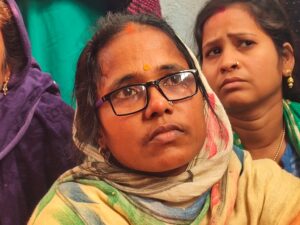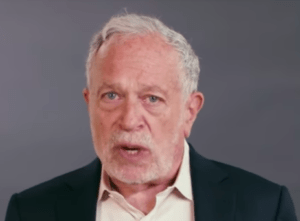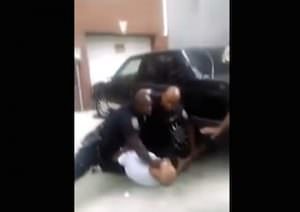After a Rape: Helping Survivors Heal, Part II
Counseling and other services allow women to reclaim control and even develop a new purpose in life. Pixabay
Pixabay
The world is changing for survivors of sexual assault. Right after an attack, women in the U.S. now have a good chance of finding support as they make their way through the resulting maze of law enforcement, medical and legal proceedings.
But to heal and thrive, survivors need long-term help as well. Across the country, rape crisis centers and other groups are working to fill that gap with hotlines, advocacy and especially counseling, which transforms some women’s lives beyond their expectations.
Every state has a coalition to combat sexual violence, and coalition members continually share new ways to improve services. In one example of these innovations, Oregon has started offering free counseling to aid in the healing process of survivors.
The counseling sessions have become available this past year through the Crime Victims’ Services Division of the Oregon Department of Justice. Whether or not they choose to report their assault to authorities, survivors can receive five free therapy sessions, in addition to free medical help. “We’re addressing physical and emotional needs,” says Nicole Broder of Oregon’s Sexual Assault Task Force. “This is a good step toward providing holistic care.”
Counseling doesn’t benefit every survivor. Take the example of Erica, who was raped as a child and then again when she was 18.
“I started to see a counselor, then another one,” says Erica, who has lived in Bakersfield, Calif., all her life. Counseling didn’t help her, but she found she could heal herself through reading books on the subject. “I learned how to deal with my mental and physical abuse [on my own],” she says. “I ‘therapied’ myself out of the darkness I was in.”
Other survivors say that counseling has been a critical factor in healing—and that it has contributed to unforeseen positive changes in their lives.
Heather also was raped twice—both times by boyfriends. The first attack occurred in Ventura County, Calif., when she was 17, and the second took place in Bend, Ore., when she was 34.
“The first time, I didn’t tell anyone until 10 years later,” she says. “The worst thing was to keep it inside all those years. I wouldn’t recommend that to anyone. Because I wasn’t dealing with my feelings, it manifested itself in other ways. I was promiscuous, and I abused alcohol and used marijuana. I wasn’t dealing with anything. It got to be a dark and scary place.”
After the second assault, which occurred in 2016, Heather began individual counseling sessions in Oregon, and she continued counseling when she moved back to California. The process has allowed her to function more successfully in everyday life, and to define a life goal.
“It’s helped me learn how to set boundaries and limits with people,” she says. “It’s helping me understand my emotions and communicate to others how I’m feeling. I deal with a lot of anxiety and depression because of what I’ve gone through, and sometimes, family members and close friends don’t understand why I act a certain way. It helps me explain it to them. It helps a lot to articulate my feelings.
“Counseling has made me a better person. I totally believe it’s helping me be a better parent. [Heather has a 1-year-old daughter.] It’s helping me build better relationships with my family—helping by leaps and bounds.
“It has also helped me figure out what direction I want to go in school. I feel more confident in going after my goals. I’m planning to go to Naropa University in Boulder, Colo., and I’m going to do my master’s in mindfulness counseling. I want to be a licensed counselor, and I want to work with victims of trauma like myself.
“Even though something really unfortunate happened to me, it has helped me find a purpose in life. Even though I’m not glad it happened, I’m grateful.”
Amy (whose name has been changed here to protect her privacy), a Laotian-American woman, survived a sexual assault when she was 20. Now 26, she tells how counseling made a tremendous difference in her life.
Amy was raped by her roommate in Flagstaff, Ariz., while she was studying to be a dental hygienist—a career path she had chosen to please her parents. “But I ended up dropping out at the end of the semester due to depression,” she says. “I couldn’t attend school or ride on a bus. Certain smells triggered [panic attacks]. So did large lecture halls. I couldn’t give presentations—I hyperventilated.”
She returned to her family’s home in Kansas, where she started attending group and individual counseling sessions.
“I had been in denial for two years,” she says. “During therapy, I realized that it wasn’t my fault and that I shouldn’t have to be afraid to go back to school.”
Counseling also helped Amy rethink her larger goals and opt for a career in a field that was meaningful to her. “Before, I was this quiet girl who was going to dental hygiene school to make my parents happy,” she says. “But now I’m studying geology to help demine war-torn countries—mainly in Laos but also in [the Middle East]. I’m so thankful for the counseling. I feel like I’ve changed for the better.”
Having emerged from denial and gained strength from her therapy sessions, Amy now volunteers with a college group dedicated to raising awareness of sexual assault. She’s especially interested in helping other Asian women who are afraid to report rape. “I tell them it’s never too late to get help and press charges,” she says. “I tell them [what happened to them] is not a normal thing. At first, they see me as an Asian girl who is trying to help, but I tell them it happened to me, too.”
Along with counseling services, crisis centers provide 24-hour hotlines to help survivors cope and heal. Some women call right after they’re attacked, but most wait longer.”The majority of people don’t call immediately after an assault,” says Elsa Granados, executive director of the rape crisis center in Santa Barbara, Calif. “There are reasons for that, including self-blame and the feeling no one would believe them. Many people call us a year after the time of the assault.”
When survivors do call the hotline in Santa Barbara, crisis center staff and trained volunteers work “to believe, normalize and validate feelings of the survivors,” Granados says. “We work off of the model of empowerment. The nature of sexual assault is that survivors feel their lives could have been taken. They feel like they’re not in charge of their lives, like they have no control. We tell them we won’t make decisions for them, but we’ll take their lead and support them in their decisions.”
Hotline workers provide accurate information about sexual assault and about services available to survivors. “Everyone has different needs; [for example, some may need to find] immediate safety in a shelter,” Granados says. “We work with partners in the community to fulfill those needs.”
Crisis centers also offer advocates who help survivors through the immediate aftermath of a rape and, if needed, through the years that follow. These advocates are different from the advocates provided by district attorneys’ offices, according to Ashley Beatty, coordinator of the Victims’ Assistance Program in Deschutes County, Ore. The latter guide survivors through the legal process but aren’t bound by confidentiality. On the other hand, advocates from crisis centers are considered privileged—what survivors tell them “is 100 percent confidential,” Beatty says.
Advocates in crisis centers provide services ranging from listening and validating feelings to supporting survivors during medical exams, police interviews and court proceedings.
In Santa Barbara, advocacy is available as long as a survivor needs it. “We look at how survivors have been affected and how they’ve developed coping mechanisms,” Granados says. “We look at those issues over the long term, and we leave the door open. The person may go through another phase of life and need our services again. For instance, if a survivor gets pregnant, she may come back. Or if she sees the perpetrator, that may create a situation where those feelings arise again.”
Rape survivors who have benefited from services such as advocacy and counseling feel others can benefit as well. “If you’re ready to do the work, it will seriously transform your life,” says Heather, the Ventura County survivor who plans to become a therapist. “I’m blown away by the changes that have happened to me.”
Barbara Dunlap is an award-winning journalist with years of writing and editing experience at publications such as the San Francisco Chronicle. She also served on the board of Winning Over Anger & Violence, a nonprofit working to end the cycle of violence in central Oregon.
Your support is crucial…With an uncertain future and a new administration casting doubt on press freedoms, the danger is clear: The truth is at risk.
Now is the time to give. Your tax-deductible support allows us to dig deeper, delivering fearless investigative reporting and analysis that exposes what’s really happening — without compromise.
Stand with our courageous journalists. Donate today to protect a free press, uphold democracy and unearth untold stories.






You need to be a supporter to comment.
There are currently no responses to this article.
Be the first to respond.